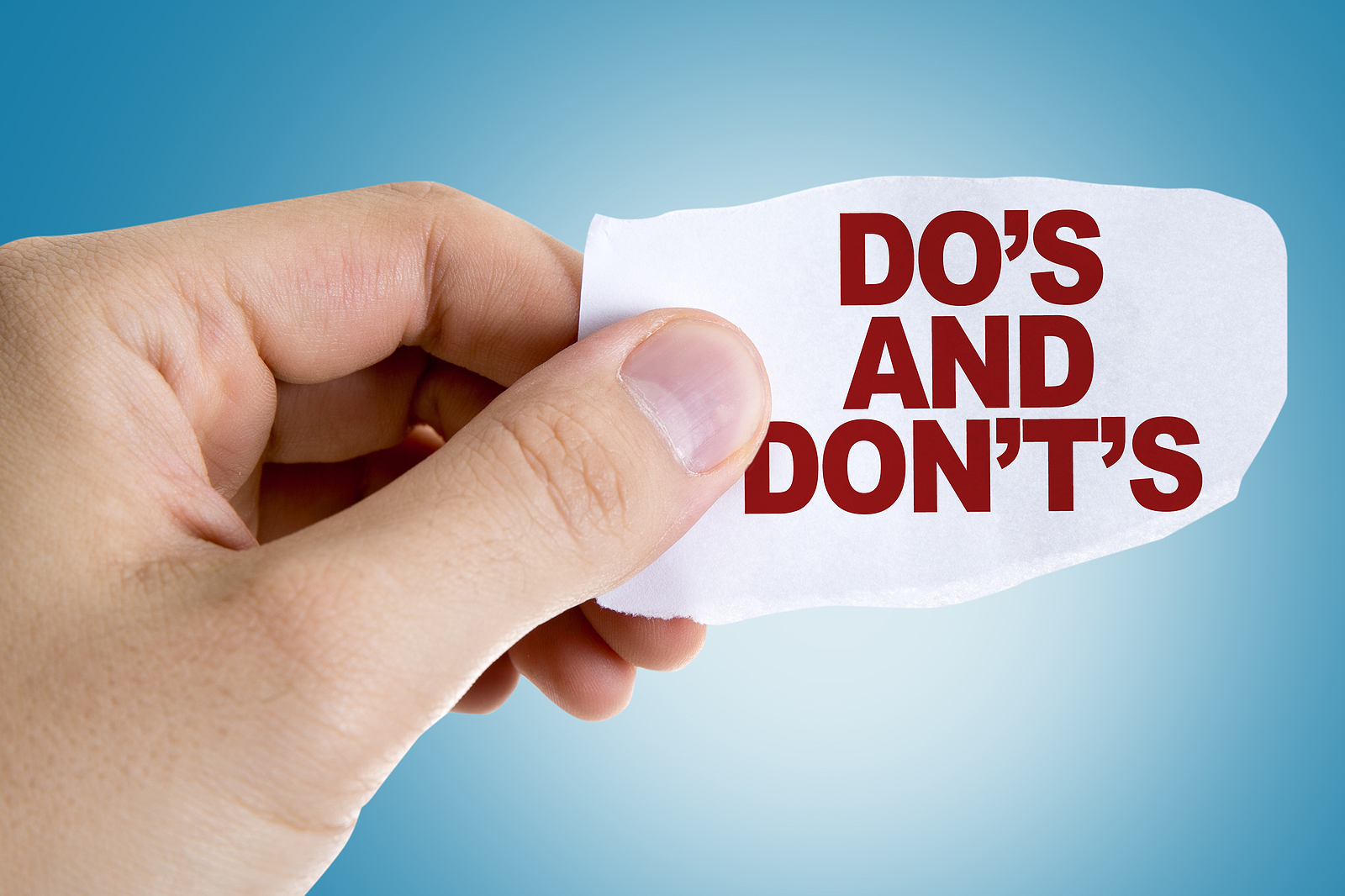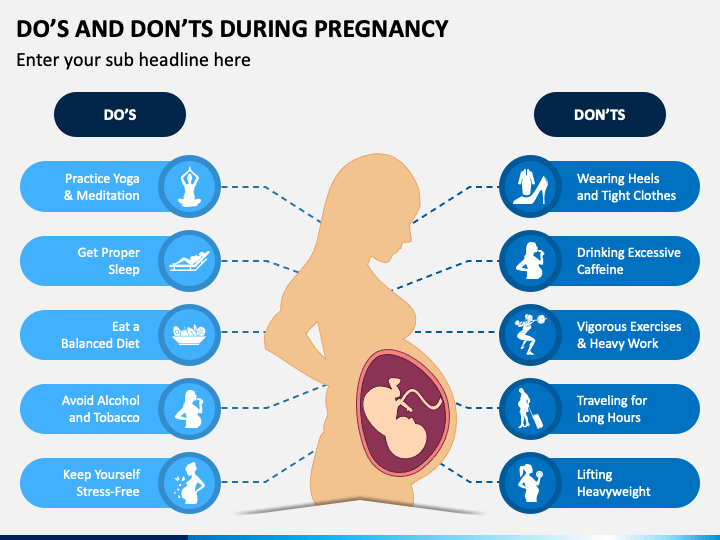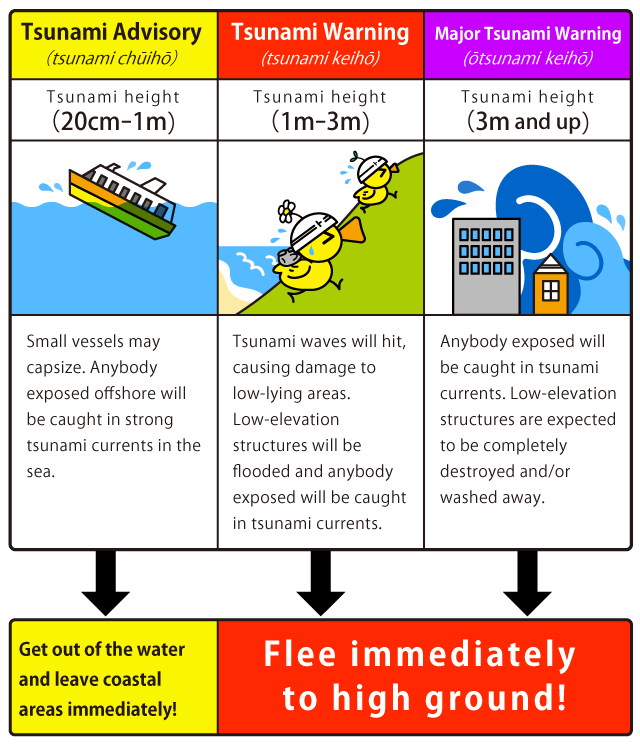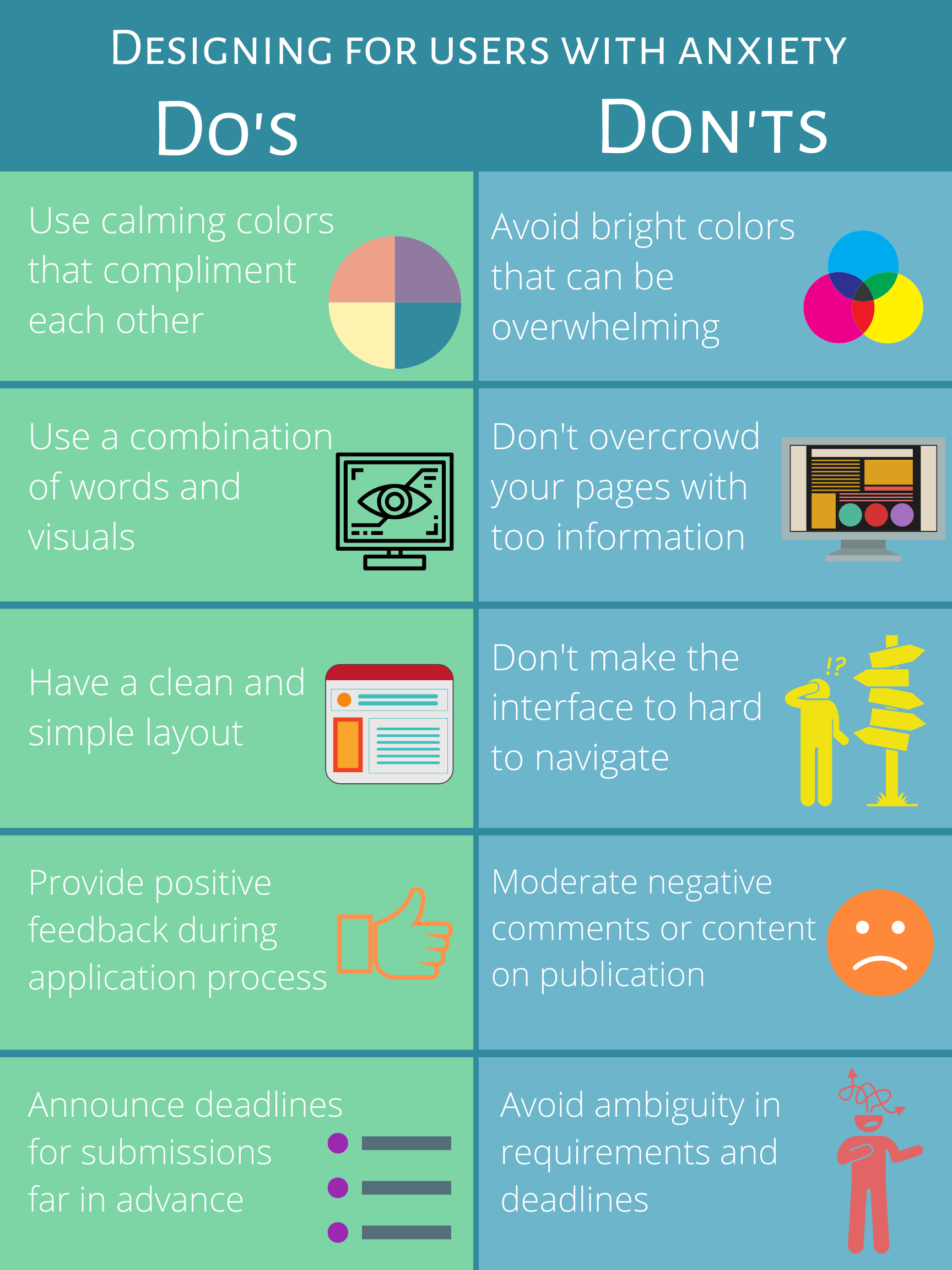In the Event of a Largescale Earthquake Expat's Life And Tips Tokyo Apartments Ken

Dos and Don’ts When Applying For A Loan Blend.ph Online PeertoPeer Funding Platform in the
Tsunami: Do's & Don'ts You should find out if your home, school, workplace, or other frequently visited locations are in tsunami hazard areas along sea-shore. Know the height of your street above sea level and the distance of your street from the coast or other high-risk waters. (Local administration may put sign boards).

Tsunami Nevis Disaster Management Department (NDMD)
Do's and don'ts Learn about the local risks and history of tsunamis Prepare an evacuation plan and route Learn and be ready to act on official tsunami advisories and alerts. Key hazard-specific messages for individuals and communities on how to prepare for, and stay safe during, tsunamis. Read more. Latest. Press release. 13/01/2023.

Do's and Don'ts During Pregnancy PowerPoint Template PPT Slides
Top 5 DON'TS Think it's over too soon. (Aftershocks, landslides & tsunamis are possible) If outdoors, go by cliffs or slopes & if you are be alert of falling rock/debris. If outdoors, get out of the vehicle. Go outdoors- stay inside until you are sure it is safe to exit. Go by windows- you may be injured by shattered glass. Top 5 DON'TS

what to do in an earthquake Google Search Acura, Acura rdx, Earthquake
Do's and Don'ts for various Hazards Tsunami Safety Do's and Don'ts before Tsunami Be familiar with the tsunami warning signals. People living along the coast should consider an earthquake or a sizable ground rumbling as a warning signal. A noticeable rapid rise or fall in coastal waters is also a sign that a tsunami is approaching.

PrepareAthon on Twitter "Be safe before, during, and after a tsunami. Beprepared and learn
Tsunami a natural disaster kaushikakumar. 5.8K views • 35 slides. DOS' AND DON'TS OF HAZARDS- TSUNAMI , DM -8.pptx - Download as a PDF or view online for free.

How Do You Get Ready For Earthquakes And Tsunamis The Earth Images
During a tsunami Do not go near the shore to watch a tsunami hit. If you can see it, you are too close to escape. Should a tsunami occur and you cannot get to higher ground, stay inside where you are protected from the water. It's best to be on the landward side of the house, away from windows.

What Should You Do During An Earthquake At Home The Earth Images
Tsunami What to do before and During Tsunami Turn on your radio to learn if there is tsunami warning if an earthquake occurs and you are in a coastal area. Be alert for early warning. If you are in dangerous area, immediately turn all the water gas and electricity and quickly move to a higher ground.

Earthquake Do's and don'ts during an earthquake YouTube
How to prepare Know the warning signs of a tsunami: rapidly rising or falling coastal waters, a loud roar from the ocean, or rumblings of an earthquake.

Fire Damage Do's and Don'ts Infographic Disaster Blaster
tsunami situation. Discussing tsunamis ahead of time will help reduce fear and save precious time in an emergency. Review flood safety and preparedness measures with your family. If you are in an area at risk from tsunamis You should find out if your home, school, workplace, or other frequently visited locations are in tsunami hazard areas.

Tsunami do's and don'ts YouTube
Don't go to the coast to watch the wave: Tsunamis are not a spectator sport. Stay away from the coast and do not go there to watch the wave. Don't use the beach as a shelter: Do not use the beach or shoreline as a shelter during a tsunami. The wave can be much higher than the normal tide level and can quickly flood the area. Don't use elevators.

What Are The Do S And Don Ts During Earthquake The Earth Images
Learn the signs of a potential tsunami, such as an earthquake, a loud roar from the ocean, or unusual ocean behavior, such as a sudden rise or wall of water or sudden draining of water showing the ocean floor. Know and practice community evacuation plans. Some at-risk communities have maps with evacuation zones and routes.

Do's & Don'ts in an event of an earthquake YouTube
The best way to protect yourself and your family in case of a tsunami is to follow these steps: Follow instructions and evacuate when told to do so, in case of a long/strong earthquake: Move to higher ground. Stay away from coast, tidal estuaries, rivers and streams; if at sea, stay there until "all clear" is issued.

Do's and Dont's during a tsunami Brainly.in
a hazard warning. Assemble your family and walk or bicycle to the nearest tsunami.safety zone (unless someone with you is mobility impaired). Wait for an official announcement that the danger has passed before returning home or to the beach.

Do’s and Don’ts Poster Introduction to Digital Publishing
can undermine foundations, causing buildings to sink, floors to crack, or walls to collapse. When re-entering buildings or homes, use extreme caution. Tsunami-driven floodwater may have damaged buildings where you least expect it. Carefully watch every step you take. Wear long pants, a long-sleeved shirt, and sturdy shoes.

Pin on Emergency Preparedness
Q: Do tsunamis crest? A: Yes. Such waves do not always look like traditional tidal waves. But they do have a crest. Q: Do's and don'ts during tsunami? A: If you are at home, DO turn off all water, gas, and electricity and flee to higher ground. Do NOT go down to the beach to watch the wave come in. Q: How are tsunamis categorized?

A tsunami is a series of ocean waves caused by earthquakes, landslides, or volcanic eruptions. These waves can kill and injure people and destroy entire communities. Tsunamis strike as fast moving walls of water that flood, drain, and re flood the land for hours. Tsunamis can flood more than a mile inland. But we can take action to prepare.